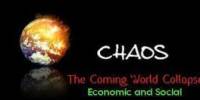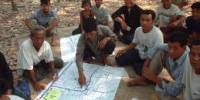Definition of Tourism
Tourism is a basic and most important desirable human activity, deserving the praise and encouragement of all people and government. The tourism industry stops not at just attracting people to a desired destination for vacation but further its services by providing with transport, accommodation, food and entertainment with security until the period of stay comes to a close.
The word tourism is derived from the Latin word TORNOS which means Tool. It consists of all these traders who together satisfy the varied needs of travelers Travel may be considered tourism if it satisfies the following conditions:
- Travel must be temporary,
- Travel must be voluntary,
- Travel must not have employment of business as its aim.
A couple of years ago traveling was the privilege of a rich affluent and adventurous people. But today with the standard of living of the people in several developed and developing countries along with fast technological revolution in transportation industry, overseas holidays are with in the rich of middle of Working class people. Travel today is considered as any other consumer product which can be sold in retail out lets by wholesaler as even in department stores in each country worthy of tourist attention. The complexity of tourist touches not only the economic fabric of the society but also has a deep-rooted effect on the existing social norms and moral values. Tourism if tackled with in understanding; on the hand may bring immense benefits to mankind in general and one the other result in social development.
Tourism is not only on economic activity of great importance of national development but is also important medium of cultural exchanges among nations of world. A list of emphasis has been laid on the economic role of tourism. Its invoicing contribution in the foreign earnings of the nation and its potential for greater employment has earned it a reputation of being one of the fastest and steady growing sectors
It is the right time today to understand the important role of tourism by means of social education and social mobilization in the country itself; as a competent force for forecasting better understanding among nations of world for developing closer cultural and business relation and as a significant factor contributing the world peace. The full impact of tourism on the national economy is not just through expenditure on the frontline tourist trade but also embraces all those industries which are outside the direct tourism sector are due to the deeds of the tourist who by spending their many facilities their need full existence.
Basic Destinations in Tourism
A) According to range: Domestic or internal (by residents within own country) and foreign or international (Between countries).
B) According to distance: Long haul and short haul.
C) According to purpose: Holiday, business and common interest tourism (with a
Purpose common to visitor and visited such as visits to friends and relatives).
D) According to duration: Day visits or excursions (Overnight stay) Staying visits or trips (overnight stay)
E) According to number in party: Individuals and group travels and visits.
F) According to arrangement: Independent and inclusive travels and visits.
G) Quantitatively and qualitatively: Mass tourism, popular tourism, social tourism.
Tourism is sensitive to world economic and political conditions. It can occur on a large scale some prosperity and security. Tourism and holiday making is global as well as National scale is a manifestation of prosperity and peace. As a great number of people in many countries have higher living standards they can afford to set aside a proportion of their incomes for holidays and recreation.
The Elements of Tourism:
In addition to three basic components of Tourism, there are certain other elements or ingredients of Tourism. The elements which predispose towards tourism developments are:-
Elements:
1) Pleasing weather
2) Scenic Attractions
3) Historical and cultural Factors
4) Accessibility
5) Amenities
6) Accommodation
















